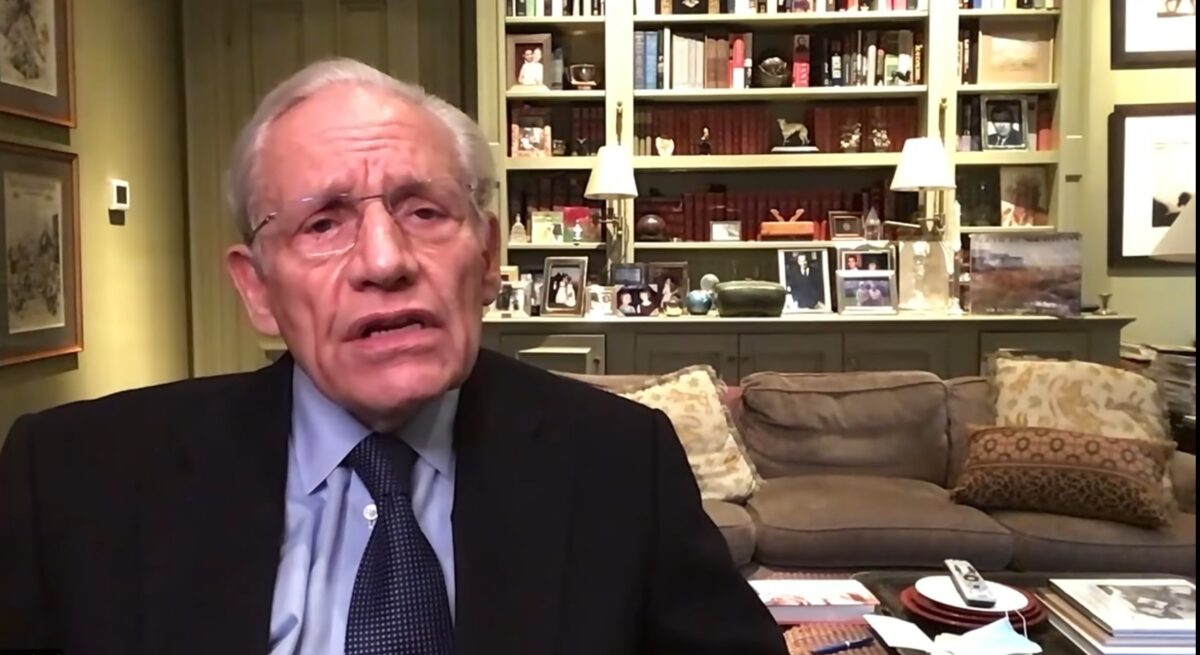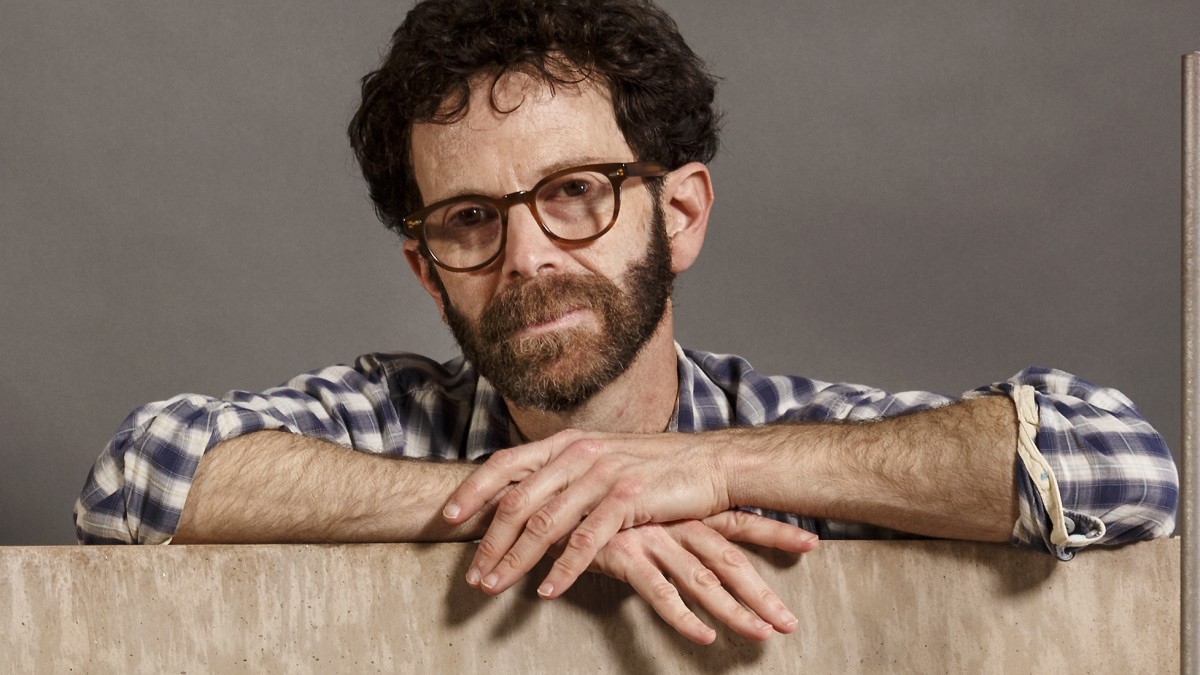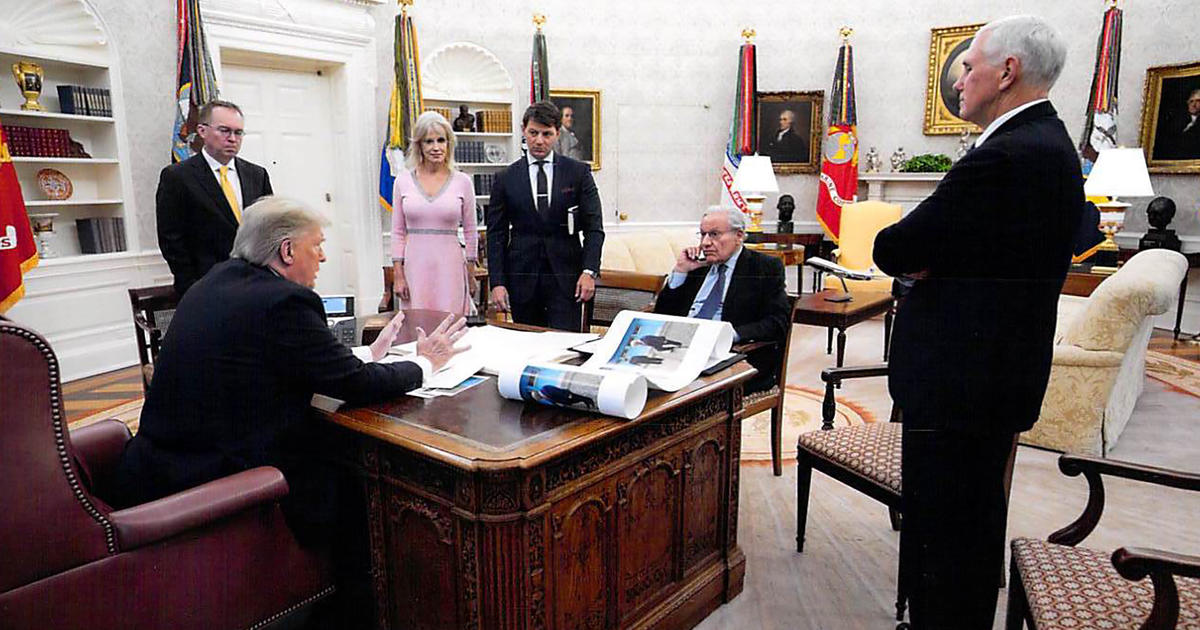On any given day, Bob Woodward demands a minimum of thirty-two apologies from various people he encounters. Most of the people whom Bob Woodward demands apologies from are women who ask him legitimate questions. But he has already answered these questions. And asking Bob Woodward a question is disrespectful. Do you not recognize the Genius of Bob Woodward? At least Bob Woodward is not grabbing the legs of his enemies like Otto in A Fish Called Wanda, looking down on their bodies from open windows with imperious vengeance and unhinged narcissism. Bob Woodward is too old for such shenanigans. But in his younger days, he may have done this.
This is the way that Bob Woodward rolls. He is a 77-year-old man of the old school. Show Bob Woodward some respect! Just yesterday, Bob Woodward demanded an apology from the barista who got his order wrong. He had ordered a skim milk latte, but the barista had accidentally given him a whole milk latte. Bob Woodward was not pleased. You don’t mess up Bob Woodward’s order. He’s a Journalistic Treasure! Don’t you remember Watergate and Bob Woodward’s invaluable journalistic contributions? Bob Woodward is a hero! Don’t you recognize this? Goddammit, he deserves the correct latte he ordered.
So when the barista politely asks Bob Woodward if he can accept a correctly constructed skim milk latte as recompense for the screwup, Bob Woodward says no. Because the barista should have made the latte right the first time. “Contact my people,” says Bob Woodward, “They’ll send you a free book.”
Bob Woodward sends a free book to anyone he demands an apology from. It seems only fair. He is sitting on a very large pile of his books. On days when Bob Woodward is depressed, he will walk into his study and stare at the vertiginous towers of his volumes stacked neatly in his den and smile and say, “Why yes! This is why I am Bob Woodward!”
It was Saturday morning. The paper boy, who is working two other jobs, hurled a copy of The Washington Post onto Bob Woodward’s porch. But the paper did not land on the pressure-treated redwood slats at the right angle. The paper did not land right next to the tall lantana plant that had spent the summer soaking up the sun. Bob Woodward was very upset by this. We might all be upset with such calumnies, even when there are very small stakes involved. It’s a difficult time to be alive. So Bob Woodward called around to people he knew at the paper and demanded an apology. “Mr. Woodward,” said the kid on the phone. “With all due respect, this is an easily cleared up misunderstanding.” “No,” said Bob Woodward. “This is a matter of pride. I’m Bob Woodward! Don’t you understand this?” And so Bob Woodward reamed into the kid on the phone and made sure that both the paper boy and the kid on the phone were fired. Never mind that these were rough economic times. But that was the regrettable price of crossing Bob Woodward. You don’t question Bob Woodward. Bob Woodward is always right. Bob Woodward has created a life that demands supplication and genuflection and obedience. Bob Woodward doesn’t understand why these kids never got the “Respect your elders!” memo.
Bob Woodward wasn’t feeling very well when Shira Stein and Karen Ho pressed him on a thorny ethical issue — namely, why he held onto the Trump tapes for so long, tapes in which Trump revealed that he knew the true threat of the coronavirus as early as February. If the tapes had been released sooner, was it possible that more American lives would be saved? Would it also be possible that lives in other countries might have been saved if Bob Woodward had not stayed quiet? Bob Woodward insisted to the two uppity women (were they really journalists or did they play journalists on TV?) that he needed to figure out whether Trump was referring to the United States when he said these things multiple times. He needed until at least May. Why the delay in corroboration? Well, Bob Woodward was still catching up on Schitt’s Creek. It was one of the few television series known to penetrate Bob Woodward’s serious hickory mien, a look modeled after Andrew Jackson that he regularly evinced to his wife and to his professional peers and that caused all people in Bob Woodward’s immediate circle to revere him and to fawn over him without criticism. Besides, like anyone, Bob Woodward needed to unwind sometimes. As Bob Woodward caught up on Schitt’s Creek between February and May, you could sometimes see Bob Woodward cracking a smile if you caught him on a good day.
And so Bob Woodward did what he always did. He demanded that Stein and Ho serve up apologies — ideally with a suggestive dance over Zoom. He didn’t really answer their questions.
But this time, much to Bob Woodward’s surprise, the two journalists did not back down. Much to Bob Woodward’s surprise, those who followed the dispute on social media took the side of the two younger journalists.
When Bob Woodward learned that his privilege didn’t inure him to criticism and that people thought he was being a dick, he began calling around for people who would offer apologies to him for invented offenses. For all perceived transgressors, he offered them a free copy of his book. Because a free copy of Rage was apparently the price you paid for abandoning your ethical core and backing down from justifiable criticism of Bob Woodward’s shaky journalistic methods.
It’s possible that Bob Woodward is a confidence man, much in the way that Janet Malcolm had famously described. After the Zoom meeting, Bob Woodward waited all day for the apologies to roll in. The apologies never arrived. Bob Woodward had reached an end point. He was too old to learn. He was too old to change. He was too caught up in the hot fire of his hubris to play it cool.
Bob Woodward had only one option left. He is now demanding an apology from himself. But he can’t seem to summon it. And he still doesn’t know why.




